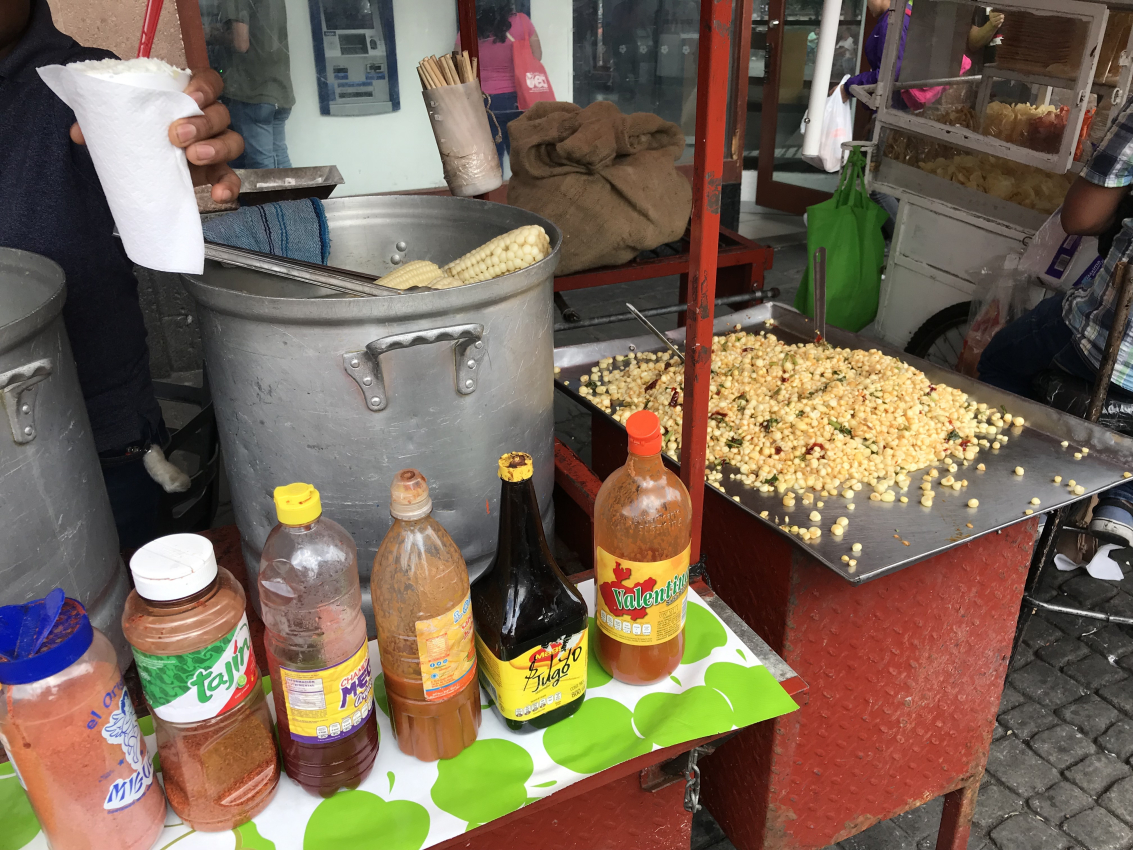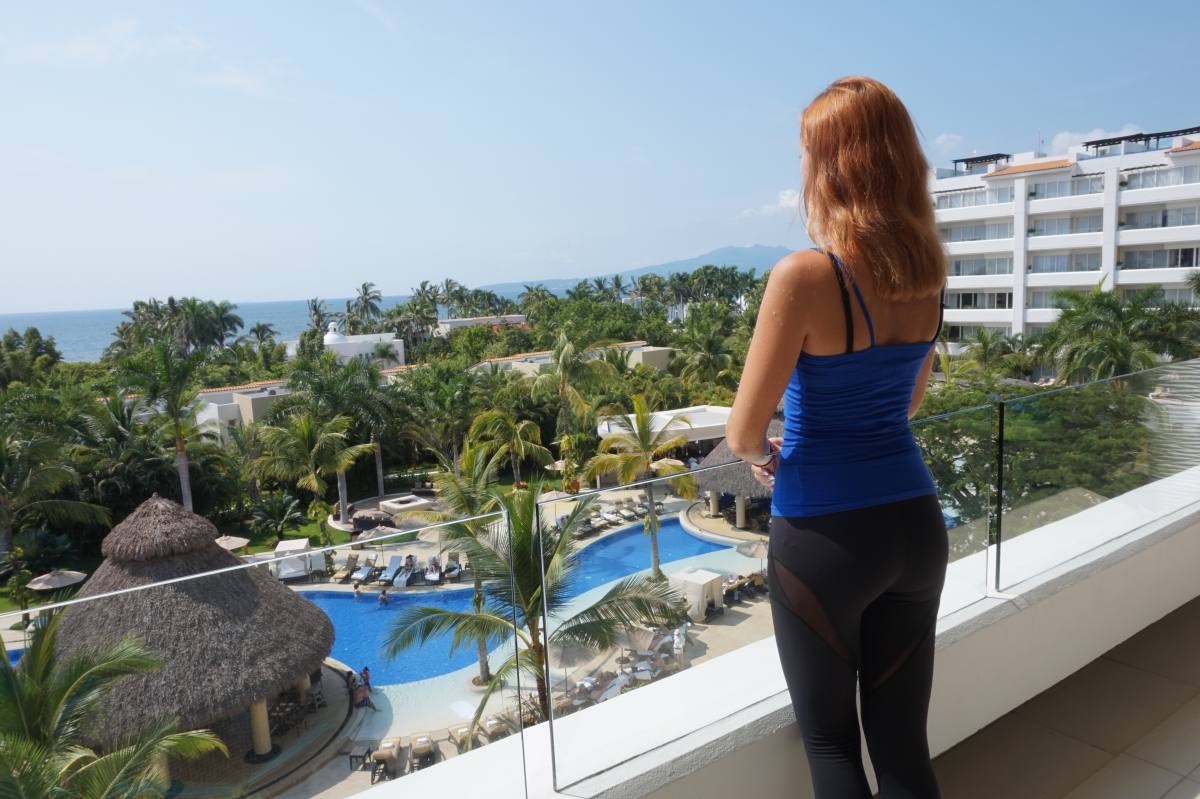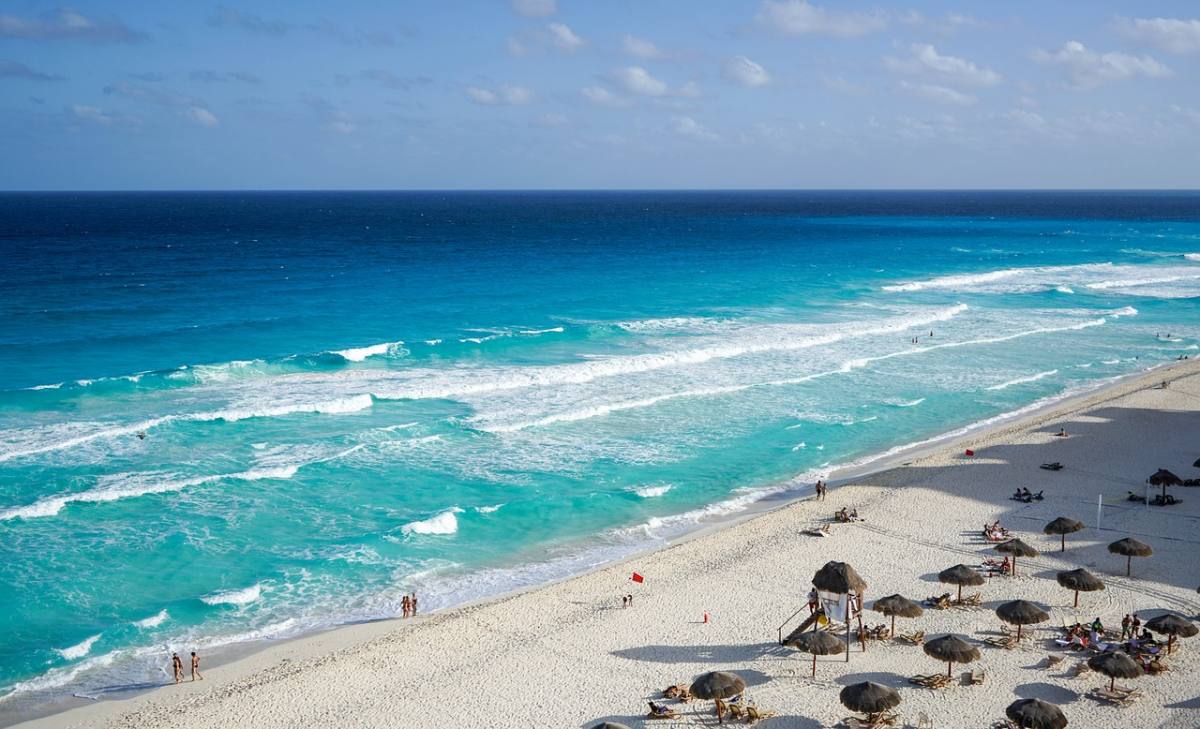10 Common Scams in Mexico & How to Avoid Them
Mexico is a great place to visit, with great beaches, tasty food and friendly people. Despite some misconceptions, Mexico isn’t a dangerous country, but like in any other touristy destination, the presence of scammers is unavoidable.
Some shady people take advantage of clueless tourists, who might not even realize what’s happened to them.
Everyone can be caught off guard and get ripped off on their holidays, but don’t freak out yet. Despite preconceived assumptions, most scams are more annoying than life-threatening. This is why I decided to give you some more Mexico travel tips by showing a few common scams in Mexico & how to avoid them as part of
Common Scams in Mexico & How to Avoid Them
1. Fake Taxis
Fake taxis can take a number of forms. Regular cars can be disguised as taxis or criminals may “borrow” a taxi specifically to pick up tourists to scam.
The scam can also be relatively harmless such as overcharging for the ride, but it can also lead to express kidnapping.
Express kidnapping happens when the taxi driver takes you to an ATM and demands you withdraw a large sum of money. Usually, they let you go after you have handed over the money and you are free to continue on your way but this is still quite a scary experience.
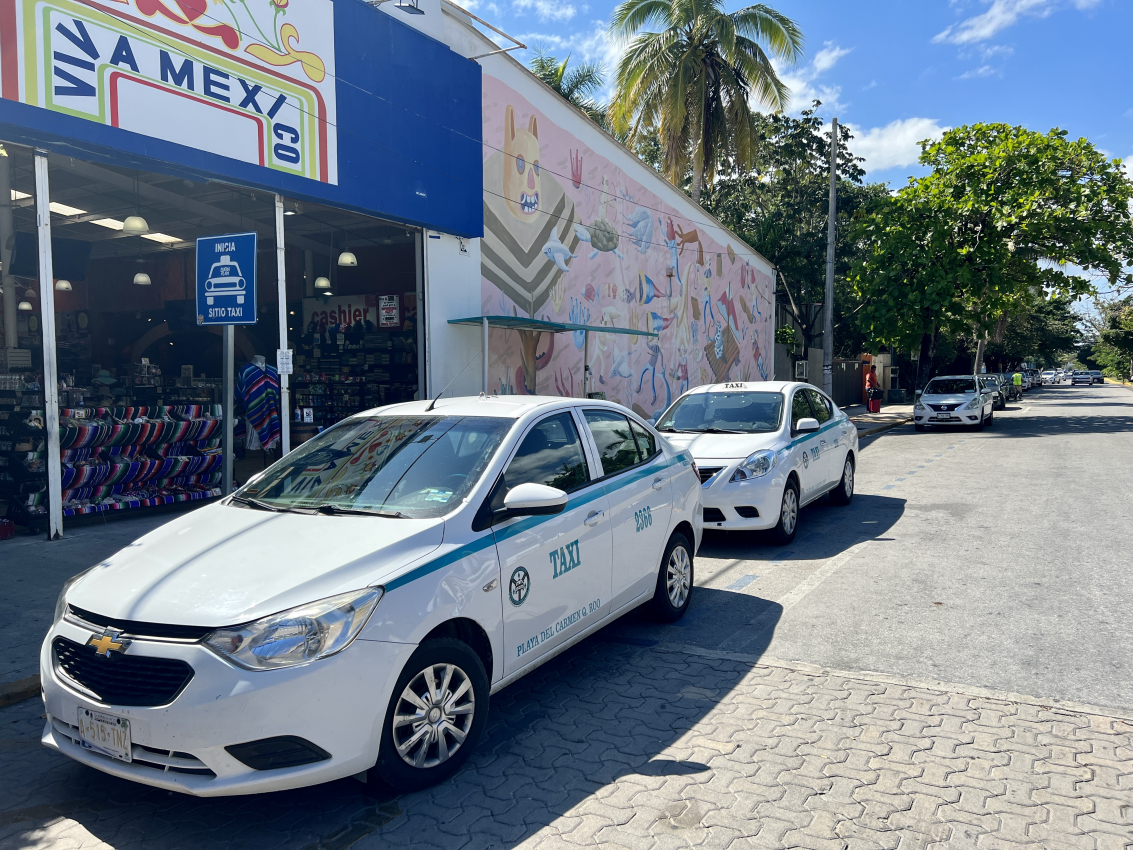
To avoid getting into an unlicensed or fake taxi, always make sure to hail taxis only at their designated taxi rank, or call and organize a taxi ahead with a recognized company (see photo above from taxis in Playa del Carmen!).
If you find a taxi driver you trust, it’s also a good idea to take down their direct number so you can always travel with the same driver.
2. Airport Handlers & Timeshare
As soon as you have made your way through the airport, especially in Cancun or Puerto Vallarta) you are likely to be bombarded with people offering you services. Some of these will want to assist you with your bags and/or transfers, others will be offering accommodation or asking you to attend a talk (mostly for timeshares).
Always research the best way to get to your destination from the airport so you are prepared.
Those wanting to assist you in any way are fairly harmless but they will most likely ask you to pay an exorbitant amount for carrying your bags a few meters but they could also very easily steal them. It’s best to hold onto your belongings and refuse any help.
Timeshare reps are even more persistent, they may offer you anything from free meals, transfers or discounts to tourist attractions to lure you in, and some even tell you that you’ve won a prize.
Always simply say “no gracias” and continue moving. The talk they ask you to attend is simply a long extended sales pitch for an expensive timeshare and they will often ask you to pay a deposit to ensure you attend the talk before giving you the free transfer.
3. Fake Alcohol
Many resorts and bars in Mexico are guilty of watering down your alcoholic drinks. So while you pay the full price for alcohol, they will mix weak amounts or even none at all.
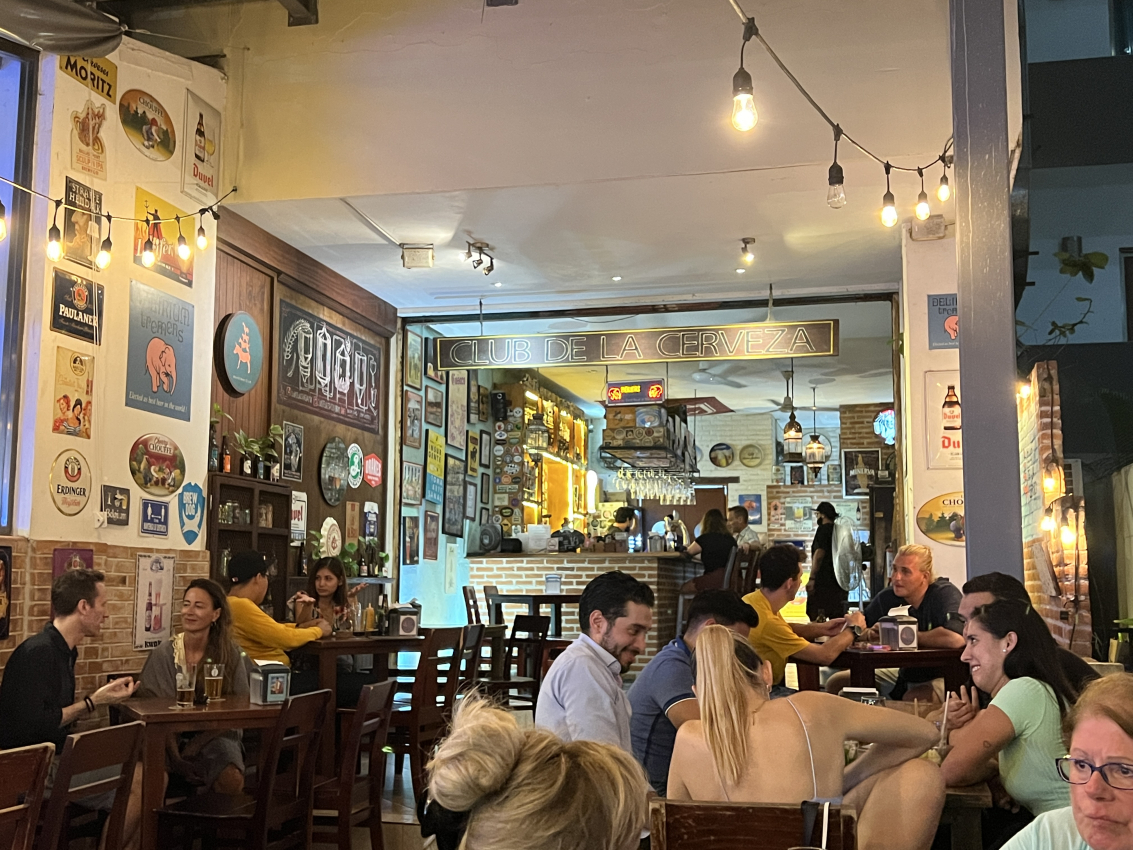
To avoid this, ask what brands of alcohol they serve and ask for a specific brand in your mixed drink.
In the worst-case scenario, bars may taint drinks with counterfeit or illegally produced alcohol. Since this alcohol is produced to be low cost, they sometimes mix in hazardous chemicals which can cause blindness or even death in the most extreme circumstances.
To avoid this risk, stick to wine or bottled beverages and watch carefully as your drink is prepared. You can also do your research and read reviews to find the best bars and restaurants and check for any complaints about the bar you want to attend.
4. Rigged ATM
ATMs around the country (particularly in petrol stations and bars) are commonly rigged with car skimming devices. These devices record all the details of your credit or debit card which are then used to make large purchases.
The easiest way to avoid this scam if you are visiting on a short vacation is to take out enough cash to cover your out or resort purchases and convert it at home before traveling to Mexico. Of course, make sure to store it in secure places and avoid traveling with all your cash as much as possible!
If you are living in Mexico or you simply have to use a card, try to use a credit card rather than a debit, as credit cards are generally better at refunding you for security breaches, and only use ATMs located inside of banks.
Regardless of where you are, you should also always monitor your bank statement for fraudulent charges. Sometimes skimmers only spend very small amounts to avoid detection, but this means they can repeat this for a long time which will add up.
5. The Place is Closed
This is another taxi driver scams in Mexico that is very easy to fall for but also simple to avoid.
As you get into your taxi and ask them to take you to your destination, whether that be an attraction or hotel, your driver will promptly convince you that it’s closed today, overbooked, or simply not good.
If you fall for this scam they will suggest a different destination or simply drive you around for a long time, racking up the taxi bill when in fact the place you wanted to go originally was open this whole time.
As convincing as they may be, stay strong and demand to go there anyway. Eventually, they will have to give in and take you where you want to go for the regular price.
6. Banknote Switch
This scam can occur anywhere you are paying in cash in Mexico. When paying for anything from tours to taxis or even in a shop, the scammer will take your money, inspect it and then promptly hand it back to you informing you that it is fake.
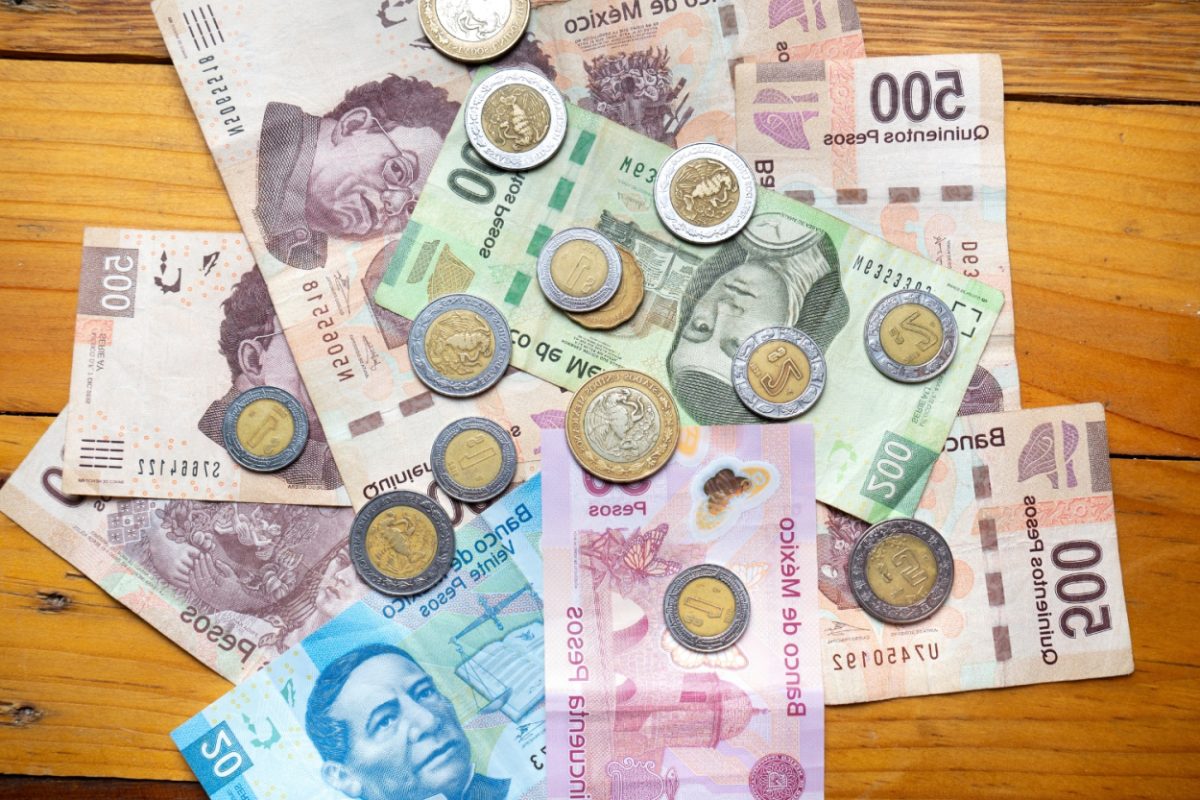
What they have actually done is take your real note and swap it with a fake one. This leaves you with a counterfeit note which is now worthless, and also having to pay double since the vendor still needs to be paid.
Unfortunately, there is not much you can do in this situation as it is your word against theirs. However, when paying in cash it doesn’t hurt to make it known that you are watching them closely as they deal with your notes. This may deter the scammer from attempting the switch on you.
7. Gas Station Scam
There are a number of different scams that commonly happen at gas stations in Mexico.
The first scam is not resetting the pump before filling up your tank. At many gas stations in Mexico, an attendant will pump the gas for you, but this makes it easy for them to quickly begin pumping before they have reset the pump. So if you ask for 400 pesos worth of gas, you will pay 400 pesos but may only get 200 pesos worth of gas.
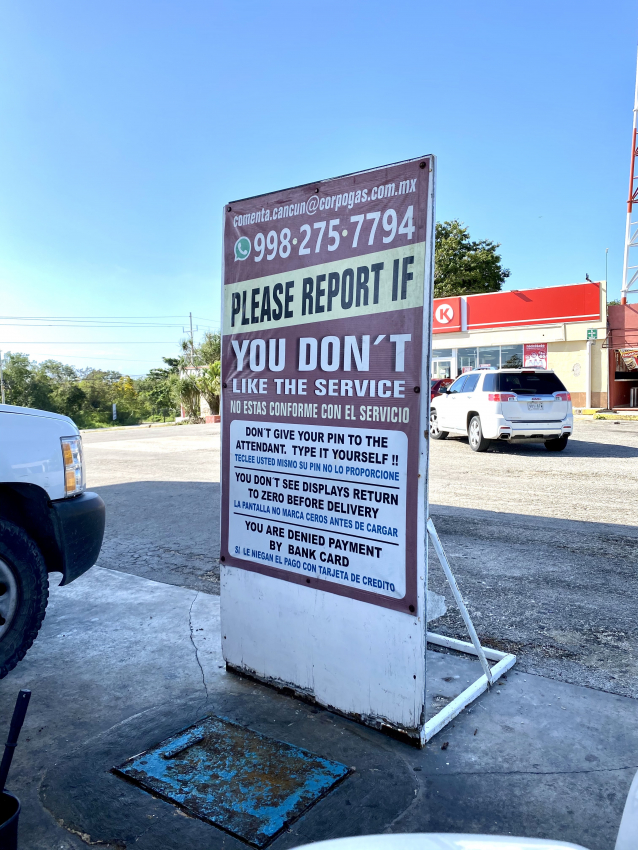
Sometimes they may pull an even more elaborate scam on you by showing you that the pump is at 0 before beginning, but actually pulling the gas from the pump behind yours. This way you can’t see the numbers which may be adding up on top of the previous person’s charge.
Lastly, they may continue the money-switching trend. You will hand over a large note and they will quickly swap it for a smaller one and tell you that you didn’t give them enough.
Always be vigilant around gas stations, take note of the numbers on the pump before and after filling your tank to ensure you have received the same amount of gas you have paid for and never accept additional services such as topping up your fluids (they will charge you but not do it).
8. Car Rental
If you want to visit some of the real hidden gems in Mexico, it’s likely you will be renting a car at some stage. As with any country, there are always things to know before renting a car, and in Mexico that includes knowing about the scams.
Aside from the gas station scams above, you also have to be wary of the rental car companies themselves. The most common way rental cars can be a scam is because of insurance (this is true anywhere in the world).
Mexican car rental insurance is required but many companies do not include it in the initial cost of the rental. This means when you turn up to pick it up, you will be required to pay exorbitant insurance fees before being able to drive away.
They may also pressure you into paying many different insurances on top of the required third-party personal liability insurance. Many credit cards offer rental car insurance and if you have good travel insurance, you probably don’t need anything for anything more than the required insurance with the rental car company.
When researching rental car companies, always use a reputable brand and read all the fine print before booking to know exactly what you are paying for, what is required and what may not be (such as spare tires).
9. Xochimilco Doll Island Scam
Visiting La Isla de las Muñecas, one of the most haunted places in the world is a popular thing to do in Mexico City but what many don’t realize is that there are countless tour operators who tell you they will take you here, but instead, take you to a tiny replica.
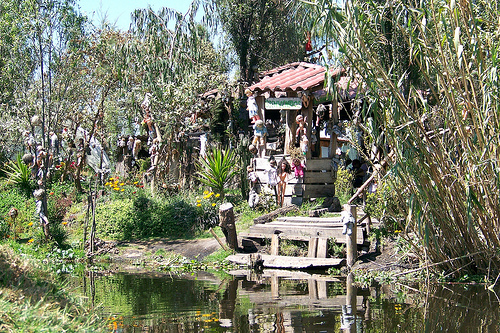
It’s required to arrange a special permit to visit La Isla de las Muñecas which is why this scam exists. After promising you Doll Island and taking your money, some tours will take you to the closer (and cheaper) fake Doll Island and pocket the difference.
Getting to Doll Island from Xochimilco takes quite some time (around 2 hours), so if your trip is quicker than this it’s likely you’ve been scammed.
Note that not all boats in Xochimilco go to the Island of the Dolls so make sure to ask for the right one before boarding and ask how long it will take before setting off.
10. Police Scam
There are too many different types of police scams in Mexico that it would be impossible to list. But the main thing to keep in mind is that there is an abundance of fake or corrupt police in certain parts of Mexico.
Some people dress up and pose as police officers, approaching tourists asking for documents, or to follow them back to the police station. When they search your belongings they will take the money from your wallet.
Other policemen will approach you and demand you pay a fine for your “illegal actions”. This most often happens while driving but can also happen on the street for actions like urinating on the street (even if you haven’t).
The easiest thing to do in this situation is just to pay the money, but know that there usually is room for negotiation. Don’t carry large sums of cash on you and if they ask for $100, tell them you only have $10-20. Hopefully, they will accept the lower amount and move on to another target.

